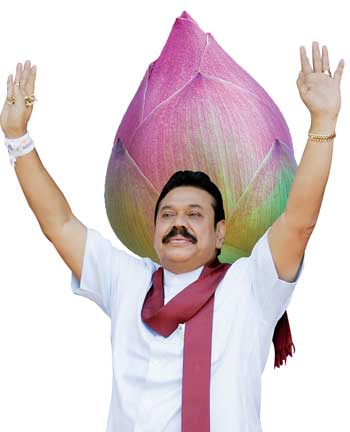Reply To:
Name - Reply Comment
 By Chandeepa Wettasinghe
By Chandeepa Wettasinghe
The local government election upset for the incumbent coalition could spell doom for the country’s economic reform agenda if Former President Mahinda Rajapaksa loyalist faction’s Sri Lanka Podujana Peramuna (SLPP) pushes its advantage in parliament, and the government may have to sacrifice some of its long-delayed reforms to maintain power.
“There are stories that a new government will be formed. We don’t know which government will come into play. If that happens, the reform programme would be completely reversed, which would not be good for the country’s economy in the long run,” said Former Central Bank Deputy Governor W. A. Wijewardena.
In the recent past he had said that despite the incumbent government’s shortcomings, it was the best bet for enacting the reforms necessary to modernize Sri Lanka’s economy to attract foreign direct investment, enhance skills and boost exports.
“The government, the main party, the UNP, will now have to look back and examine itself where it has gone wrong,” he said.
Unless the parliament composition changes, there won’t be any effect on the national economy, according to Wijewardena.
National Chamber of Commerce of Sri Lanka President Sujeeve Samaraweera too echoed these sentiments, saying the local government elections results itself won’t have any immediate impact on reforms or doing business.
“Stability of course if the key; we will have to wait and see whether MPs crossover,” he said.
Numerous reports yesterday said that the SLPP was already at work, attempting to form alliances in parliament to call for a snap election through a resolution to parliament— to circumvent the constitutional roadblocks against a premature dissolution of parliament— to ride into power on the support it currently enjoys.
The election results follow two years of the agriculture sector—in which nearly a quarter of the population is directly employed—underperforming due to weather anomalies, as well as the fiscal and monetary tightening of the government to normalize macroeconomic indicators and enact reforms, which saw economic growth falling and the populace becoming dissatisfied with the government.
Even if the SLPP does not succeed in its immediate power plays, the situation may prove challenging for the coalition government up to the 2020 general and presidential elections, hanging over like a Sword of Damocles, and threatening the reform process.
Some academics such as Institute of Policy Studies Executive Director Dr. Dushni Weerakoon in the recent past had mentioned that reforms are easier at the start of an electoral cycle, since the painful adjustment costs would be repaid by gains over a 4-5 year period.
The coalition government’s reforms however were delayed and were just about to hit their stride when the local government upset occurred, with just two years left to go for the two critical elections.
Central Bank Governor Dr. Indrajit Coomaraswamy too last week said that while the reform process is encouraging and is in moving in the right direction, it is not happening as fast as it should.
Meanwhile, Softlogic Stockbrokers Research Head Danushka Samarasinghe yesterday said that the reforms would have to be readjusted towards growth.
“The ongoing reform process would have to be readjusted and revisited with regard to economic growth and income levels. The polls indicated that Sri Lankans are displeased with the inaction and failure of the 2015 government in keeping their promises. Therefore they have sided with the former President Rajapaksa, who is a proven leader,” he said.
Unless there is an adjustment by the incumbent government towards growth, uncertainty in the economy would intensify over the next two years, Samarasinghe opined.
He added that the markets may open strongly tomorrow due to sentiments of local retail and high net worth investors reacting to the election results, but that this would be a short-term effect, since the government’s reactions to the election would weigh in the longer-term.
“Now the government has two plus years and uncertainty about investments and markets would get intensified unless President Sirisena makes a strong move towards correcting their actions for the rest of the government’s term,” he said.
However, the government’s ability to halt the reform process and move towards populist policies may also be restricted since the country is deep into an International Monetary Fund’s (IMF) reform programme linked to a balance of payments relief package, required due to the debt-fuelled growth strategy Rajapaksa opted for in the past.
That era also saw Rajapaksa transform Sri Lanka into one of the most protected economies in the world.
The Institute of Policy Studies Chairman Professor Razeen Sally predicted the current scenario back in 2016, when he said that unless the government promptly delivers the promised reforms and moves towards growth, the grass roots levels would move back towards a ‘Rajapaksa dictatorship’.
“With the rising social discontent, particularly outside Colombo, I think this scenario (a relapse into a Rajapaksa like scenario) becomes more plausible by the day or by the month in the run up to the next presidential election,” he had said.